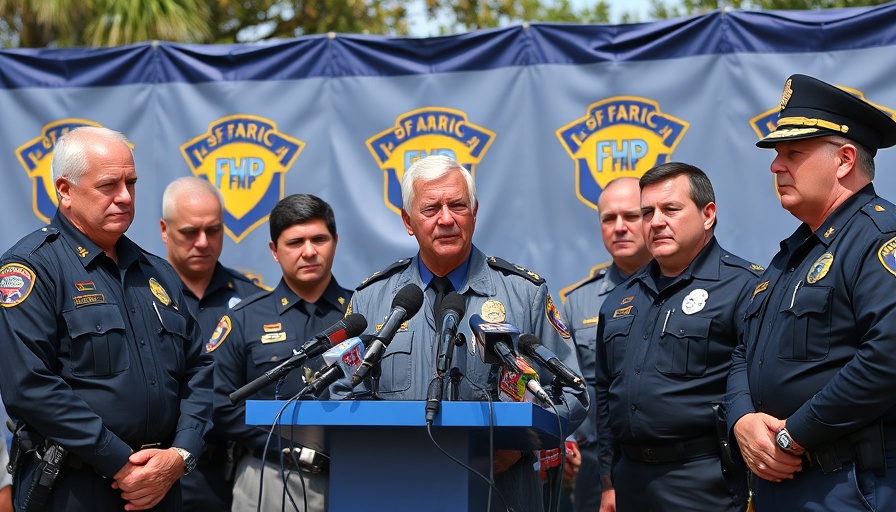
ICE Takes Aim at Florida's Criminal Gangs
In an important move against international crime, Acting U.S. Immigration and Customs Enforcement (ICE) Director Todd Lyons visited Orlando to launch a concentrated effort against criminal gangs operating in Florida. Joined by local law enforcement, including Orange County Sheriff John Mina and Florida Highway Patrol Executive Director Dave Kerner, Lyons highlighted the critical collaboration between state and federal agencies to tackle threats like the Tren de Aragua gang, a notorious organization based in Venezuela.
Collaborative Efforts Under 287g Agreements
The visit underscored the success of the 287g agreements signed by ICE with all 67 county sheriffs in Florida, as well as numerous local police departments. These agreements empower state and local law enforcement to assist in immigration-related law enforcement efforts. "We can’t do this alone," Lyons remarked, emphasizing the importance of collaboration in addressing complex issues surrounding immigration and crime.
Recent Crackdowns Yield Results
During this week alone, ICE and its partners have made significant strides, arresting 68 suspected members of the Tren de Aragua gang across the U.S. Additionally, in a coordinated effort, Florida law enforcement has apprehended individuals linked not only to Tren de Aragua but also to other gangs like MS-13 and Brothers Circle, representing diverse origins. As Col. Gary Howze II of the Florida Highway Patrol noted, these initiatives have already resulted in the detention of over 130 illegal aliens involved in criminal organizations this year.
Community Impact and Future Directions
Local officials, including Sheriff Mina, voiced strong support for these initiatives. They pledge to continue working closely with ICE to enhance public safety in their communities. By maintaining this partnership, officials aim to dismantle violent criminal networks and ensure a safer environment for Florida residents.
As this operation unfolds, Floridians are encouraged to stay informed about how these joint efforts will shape community safety measures in the coming months. This concerted push against organized crime not only reflects law enforcement's commitment but also a collective responsibility to tackle such pressing societal issues head-on.
 Add Row
Add Row  Add
Add 



Write A Comment